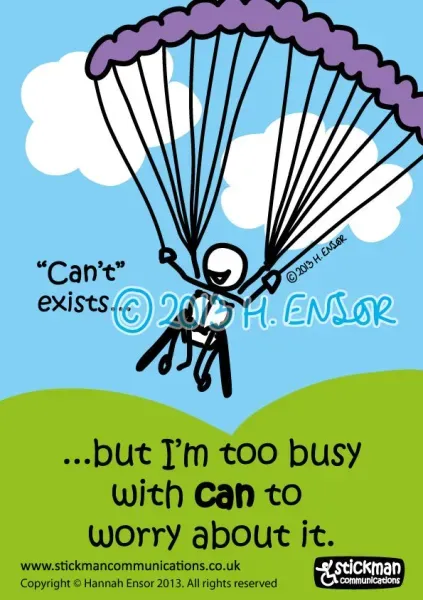“I’d Rather Be Dead…”

I retweeted something the other day – it was about a phrase that is often said to me:
“I’d rather be dead”.
What they are saying is; my disability is so awful they just can’t see how life could be worth living with one. It seems to be the prevailing thought and it couldn’t be further from the truth.
Having been a nurse, I do like watching medical documentaries, and as such I can see why we move heaven and earth to prevent permanent disability. We do all we can to save all we can.
But phrases from relatives make it clear that the worst catastrophe in the world would be for their loved one to have a permanent disability and that their loved one wouldn’t want to be kept alive if they were going to be disabled. A few others will say they would rather have their loved one alive and deal with any disability there may be…..sometimes this is couched with “I hope they will forgive me”.
I know I’m making a judgement on an ‘in the moment’ comment here, but look wider and into many Hollywood themes around disability being the worst thing ever – the only time it’s a happy ending is if the person walks again, completely recovers…..or even dies – so the suffering is over.
I actually like the way the NCIS tv franchise works – disabled people are cast just because there are disabled people doing those jobs in real life. They are not there to make a comment about disability, they are just there, one of the team and their disability is not the main focus. It’s the same in a couple of English tv programmes too, but this way of working is quite rare.
**Trigger Warning – abortion** [just the next paragraph]
When we look at elective abortion – the rules around this being allowed to happen up to 40 weeks are written in terms of a child’s disability being ‘incompatible with life’ – and I’m not disputing that here. I’m asking why parents are pushed towards elective termination, even at the point of being in labour, if their child has a survivable disability or disfigurement. Is it because so many medical people also view things like Down syndrome, cleft lip/palate, clubbed feet etc as incompatible with life?
Many healthy disabled people are routinely asked when in hospital if they have signed a ‘Do Not Resuscitate’ form. Why? Non disabled people are not routinely asked that?
This is why many disabled people fear euthanasia being allowed in the UK – especially if the rules are as liberal as they are in Canada.
Where is the value of life? And why do people rarely value disabled lives?
These views may not be spoken of in this way by Christians, but the implications are still there.
It’s in how we speak about a child born with disabilities, how we respond to someone who has become disabled and how we couch everything in terms of fixing people.
As I’m always saying, if our first contact with a disabled person outside of ‘The Church’ is “can I pray for your healing” what does that say about how the church views disability?
We sometimes find disabled people ‘inspirational’ because they get on with life – they go shopping, cross roads and even go the the toilet alone. (Just like anyone else!) But seeing someone with a disability doing normal everyday stuff, for some reason, makes us feel better about our own lives.
If all we can see about disability is the awful prospect of having one ourselves, then something is wrong.
Like many others out there in the world, we in ‘The Church’ worship the idols of perfection, normalcy and what we call ‘ability’. If someone’s body doesn’t comply with that, then that’s their problem (and they need to be fixed).
Our churches use ‘normal people’ – as worship leaders, as pastoral leaders and speakers. We roll out a disabled person when we want them to say something on the subject of disability or to inspire and make us feel better about ourselves.
And yet, many with disabilities can’t access discipleship, leadership training, or even just normal Sunday worship.
When access to any area of church life is an issue, we tend towards seeing the disabled person as the problem. Not the inaccessibility of what we do.
Isn’t all this reflecting the thought “I’d rather be dead”?
Should we instead be saying saying “This is my brother/sister in Christ – it’s obvious I should treat them the same? Why would I want them another way?”









